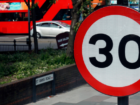If you’ve been caught speeding by a traffic officer, or by one of the 6,000 speed cameras dotted around the UK, you have two options:
Accept the fine and penalty points, or appeal
The majority of drivers caught speeding will be issued with a minimum of three penalty points and a £100 fine within 14 days of the offence.
If you choose to pay it and accept the penalty points then you must do so within 28 days.
Failure to pay in time may lead to a court referral which will usually result in a much higher fine than the original fixed penalty charge.
If you believe the charge was made in error then you can contest this in court and the case will be overseen by a Magistrates Court.
More serious offences are normally referred straight to court and you could be fined up to £1,000, or up to £2,500 for a motorway offence.
Penalty points added to your licence will stay there for three years from the date of the offence.
Take a speed-awareness course
To avoid penalty points and the resulting hike in your insurance premium, you can sometimes choose to take a speed-awareness course instead.
More drivers are being offered the courses since changes were introduced to the qualifying speeding ranges (e.g. drivers in a 20mph zone caught speeding at 34mph may be offered the course but at 35mph they will inevitably be prosecuted).
What’s the impact of both?
Firstly, there’s the initial cost of the speeding fine – whether it’s £100 or £2,500 it’s unlikely to be something many people will have budgeted for.
Similarly, if you decide to contest the charge in court you may need to take time off work and seek legal advice, and should your appeal be unsuccessful you may have to pay a lot more than original fixed penalty.
Aside from the fine, having just three points on your licence can add hundreds onto your car insurance. The more points you have on your licence the higher your insurance premium will be.
If you receive more than 12 points within three years you could face losing your licence plus disqualification from driving.
If you decide to go for the speeding-awareness course to avoid the penalty points you will need to pay for this out of your own pocket (they typically cost around £100) and may need to take a morning off work to attend.

Many drivers see speed-awareness courses as a ‘get out of jail free’ card as they can usually help you avoid paying substantially more when it comes to insurance renewal, but this isn’t always the case.
While some insurers won’t insure you at all if you’ve been caught speeding, others will still raise your premium even if you choose to take the course, as they consider speeding drivers in any capacity a significant risk to insure.
Speeding doesn’t only impose a risk to the driver, it also puts other motorists and pedestrians at risk as well.
Speed is a major factor in the majority of fatal road accidents with the risk of death for a pedestrian hit at 40mph rising to four times higher than if they were hit at 30mph.
A conviction for dangerous driving could result in a £5,000 fine, six months in prison and a disqualification from driving, while a conviction for death by dangerous driving carries a possible 14-year prison sentence and a disqualification from driving.
Assess the vehicle you are in, the current driving conditions and the potential hazards before attempting to meet the speed limit for each road. Speeding simply isn’t worth the risk it carries and the destruction it can cause.








